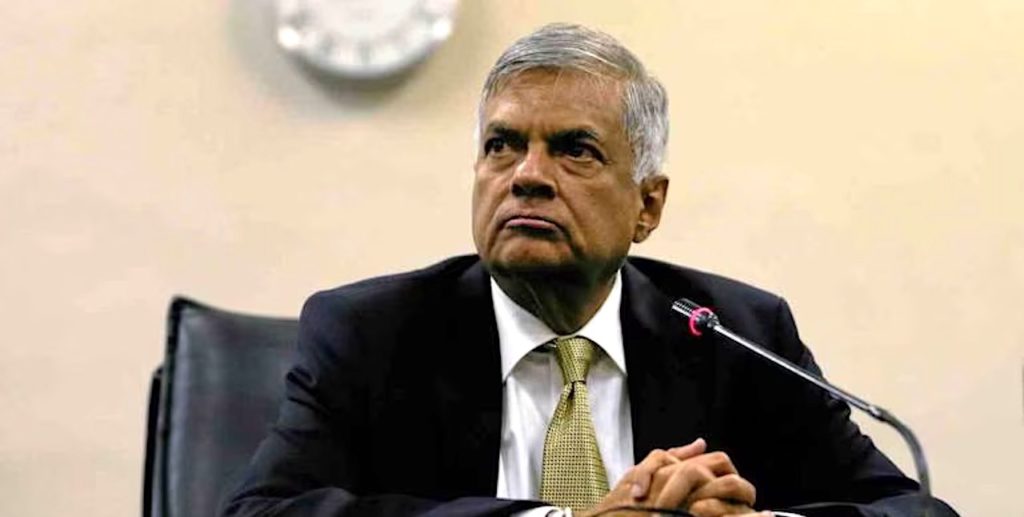Photo courtesy of moneycontrol
The most recent Institute for Health Policy’s (IHP) Sri Lanka Opinion Tracker Survey for July 2024 shows a tight race in the upcoming presidential election. NPP/JVP leader A.K. Dissanayake and SJB leader Sajith Premadasa are neck and neck, each garnering approximately 37% and 36% of voting intent respectively but neither candidate has secured more than 40% support among all adults.
July also saw a significant surge in support for incumbent President Ranil Wickremesinghe, whose backing grew to 23%. Meanwhile, support for a generic SLPP candidate remained stagnant at 4%, with Namal Rajapaksa only declaring his candidacy in August.
Dr. Ravi Rannan-Eliya, the polling director, noted: “AKD’s strength stems not only from support among the young but also from winning the largest share of disaffected Gotabaya voters.” This understanding is crucial, as the biggest voting bloc in 2019 was the 6.9 million who supported Gotabaya Rajapaksa. The economic crisis has since discredited the SLPP, dispersing its voter base. The candidate who can mobilise the largest share of the former SLPP vote block is likely to win the next election.
The problem with Ranil Wickremesinghe is that he represents continuity in economic policy as well as politics. On the economic front a certain level of stability has been achieved. People still remain much poorer than they were in 2019 but the rate at which they continue to be impoverished has slowed almost to a halt. They remain poorer but by and large their situation is not getting much worse.
There are two points to note in the achievement of this stability, meagre though it may seem:
- It required substantial behind the scenes work, most of it quite invisible to the public and thus is not appreciated. It is notable for what was avoided, most critically a domestic banking crisis, for as much as what transpired. A domestic banking crisis is frequently associated with crises of this nature and its avoidance was no mean feat.
- The stability remains fragile and could easily be lost if monetary policy becomes uncontrolled. Thus, in economic terms this is not the bottom; another mistake could plunge us down another chasm, where many an unfortunate African or Latin American country has fallen.
That the continuity in economic policy is necessary to avoid further crises is the strongest claim that President Wickremesinghe offers for continuity.
Unfortunately he also represents continuity in politics. Regardless of what the real position may be, voters closely associate him with the tainted old regime and he is not likely to shake this off in the next few weeks before the election. Thus he has little prospect of catching a much larger share of the disaffected Gotabaya vote block.
The IHP poll shows that his popularity has grown by about 155% (9% to 23%) in the five months between February and July 2024 (accompanied by many fiscally irresponsible promises) but it is very difficult to see how he can achieve a similar gain; the minimum he would need to be a serious contender in the next few weeks.
The economic arguments for continuity are complex, arcane and understood by a small minority. The fallout from the economic crisis is widespread. While the causes of the economic suffering are due to corrective measures put in to address the mistakes between 2019-22 (and those that preceded this period) all blame falls on the man at the helm.
Thus President Wickremesinghe is in a hopeless position. While he has probably gained some small share of the SLPP base, most of the votes he has been able to collect would probably be from the vote bank of the SJB.
Given that President Wickremesinghe is unlikely to succeed, the SJB offers the best electorally viable option for continuity in economic policy. Many of its members have recent experience in government and understand the challenges and limitations of Sri Lanka’s state machinery. However, the SJB lacks a clear lead due to a split in its vote base.
In pursuing an unachievable goal, President Wickremesinghe diminishes the chances of maintaining continuity in economic policy and increases the risk of a renewed crisis.
Therefore, President Wickremesinghe should make a painful concession to reality and withdraw. Withdrawal would not be an act of cowardice; it would be a historic act of leadership, a demonstration of his willingness to put the interests of the country ahead of his own ambitions. Joe Biden took that difficult step; President Wickremesinghe must follow that example.
The question then arises – what should President Wickremesinghe’s loyal supporters do if he refuses to step down? They should collectively abandon ship and shift their support to the SJB. This election is too crucial to be swayed by personalities. The priority is to avoid another crisis. The pragmatic political calculation is that the SJB provides the best chance of doing so. They must vote with their heads, not their hearts.
For those who remain unconvinced by these arguments and still intend to vote for Mr. Wickremesinghe, they should hedge their bets by marking “1” for him and “2” for the SJB.
The political supporters and backers of President Wickremesinghe should reflect on this quote from John Kenneth Galbraith: “Politics is not the art of the possible; it is the art of choosing between the disastrous and the unpalatable.”
